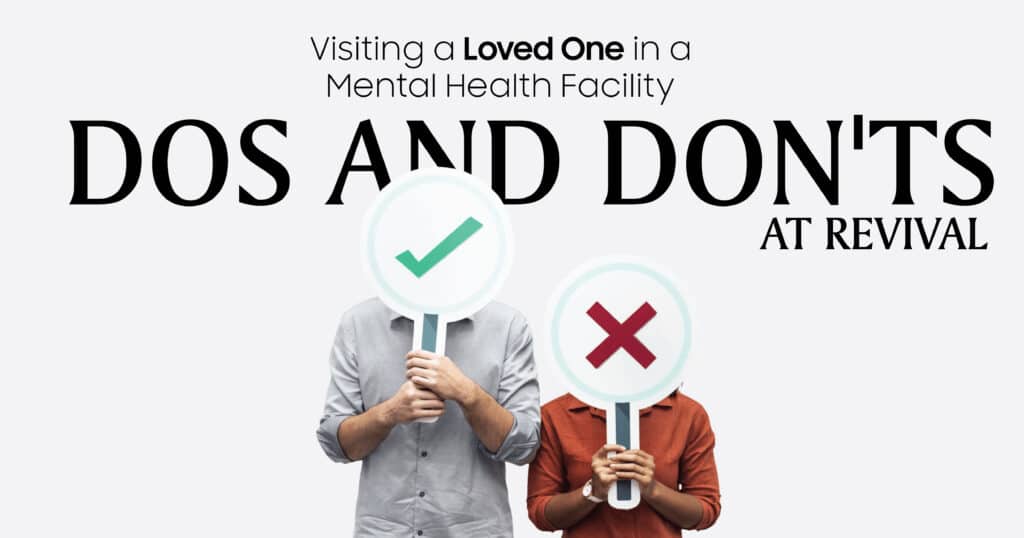
Visiting a loved one in a mental health facility can play a vital role in their recovery journey. To make your visits meaningful and supportive, it’s essential to navigate the dos and don’ts of such visits. This article provides invaluable guidance on how to offer empathetic support, respect personal boundaries, and foster a positive environment during your loved one’s time in a mental health facility. By following these suggestions, you can ensure that your visits contribute to your loved one’s healing and demonstrate your unwavering support.
Dos and Don’ts When Visiting a Loved One in a Mental Health Facility
1.1 Do: Show Empathy and Active Listening
- Express empathy by actively listening and validating your loved one’s emotions without judgment.
- Be attentive, understanding, and offer support by asking open-ended questions and allowing them to freely express their feelings.
1.2 Don’t: Offer Unsolicited Advice or Minimize Their Experiences
- Avoid providing unsolicited advice as it may invalidate their feelings or experiences.
- Refrain from belittling their struggles or comparing their situation to others’, as it may undermine their emotions and self-worth.
1.3 Do: Educate Yourself About Mental Health
- Educate yourself about mental health conditions and their treatment options to foster understanding and empathy.
- Learn about your loved one’s specific condition, its symptoms, and potential challenges to enhance your ability to provide appropriate support.
1.4 Don’t: Stigmatize or Judge Their Condition
- Avoid perpetuating stigma and negative stereotypes surrounding mental health conditions.
- Refrain from making derogatory comments or using demeaning language that could further contribute to your loved one’s feelings of shame or isolation.
1.5 Do: Respect Personal Boundaries and Confidentiality
- Respect your loved one’s personal boundaries by asking permission before discussing specific topics.
- Maintain confidentiality by not sharing sensitive information about their condition or treatment with others without explicit consent.
1.6 Don’t: Push for Disclosure or Rush their Recovery
- Allow your loved one to share their experiences and progress at their own pace.
- Avoid pressuring them to disclose details or pushing for quick recovery, as it may undermine their sense of control and progress in their own process.
1.7 Do: Plan Activities that Promote Connection and Well-Being
- Engage in activities that promote connection and well-being, such as playing games, going for walks, or participating in therapeutic exercises together.
- Discuss potential activities with your loved one and prioritize their preferences and comfort level.
1.8 Don’t: Overwhelm or Overstay Your Welcome
- Ensure your visits are of an appropriate length to prevent overwhelming your loved one.
- Be mindful of their energy levels and emotional state, and respect their need for personal space or alone time.
Nurturing Support and Encouraging Recovery
Visiting a loved one in a mental health facility is an opportunity to provide vital support and encouragement during their recovery journey. By understanding the dos and don’ts outlined in this article, you can ensure that your visits are understanding, respectful, and beneficial for your loved one’s mental well-being. Remember, your presence, empathy, and willingness to listen can make a significant difference in their healing process.




